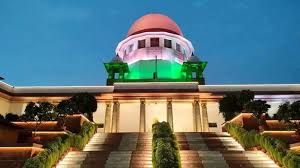NEW DELHI: Cautioning the police and trial courts against invoking Section 306 of the IPC on abetment to suicide in a mechanical manner, the Supreme Court on Friday said, “Hyperboles employed in exchanges should not, without anything more, be glorified as an instigation to commit suicide.”
Discharging one Mahandra Awase of the charges of abetting the suicide of a man from Madhya Pradesh, a Bench of Justice AS Oka and Justice KV Viswanathan said, “It is time the investigating agencies are sensitised to the law laid down by this court under Section 306 so that people are not subjected to the abuse of process of a totally untenable prosecution.”
Writing the judgment for the Bench, Justice Viswanathan said, “The trial courts also should exercise great caution and circumspection and should not adopt a ‘play it safe’ syndrome by mechanically framing charges, even if the investigating agencies in a given case have shown utter disregard for the ingredients of Section 306.”
The top court’s ruling assumes significance in view of the recent suicide by Bengaluru-based techie Atul Subhash, allegedly due to harassment by his wife and in-laws, who have been booked on charges of abetting his suicide.
Section 306 of the IPC (now replaced by Section 108 read with Section 45 of the Bharatiya Nyaya Sanhita, 2023), reads, “If any person commits suicide, whoever abets the commission of such suicide, shall be punished with imprisonment of either description for a term which may extend to 10 years, and shall also be liable to fine.”
The deceased – who committed suicide on October 11, 2022 — had left behind a suicide note blaming the accused for the extreme step as Awase was forcing him to repay a sum of money. The trial court framed charges for abetment of suicide against Awase and the high court refused to quash the charges, forcing him to approach the top court.
Allowing Awase’s appeal against the high court’s verdict, the Bench said, “While the persons involved in genuine cases where the threshold is met should not be spared, the provision should not be deployed against individuals, only to assuage the immediate feelings of the distraught family of the deceased. The conduct of the proposed accused and the deceased, their interactions and conversations preceding the unfortunate death of the deceased should be approached from a practical point of view and not divorced from day-to-day realities of life.
“In order to bring a case within the purview of Section 306 of the IPC there must be a case of suicide and in the commission of the said offence, the person who is said to have abetted the commission of suicide must have played an active role by an act of instigation or by doing certain act to facilitate the commission of suicide. Therefore, the act of abetment by the person charged with the said offence must be proved and established by the prosecution before he could be convicted under Section 306 of the IPC,” the top court said.


